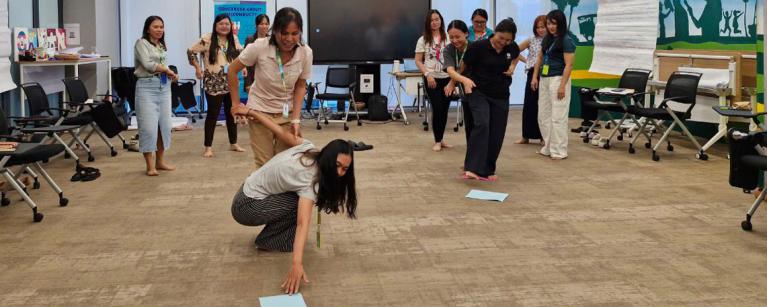Oxfam has partnered with the Transcultural Psychosocial Organization (TPO) to offer two consecutive self-care sessions for its staff, focusing on managing stress at work. These initiatives are crucial for promoting staff well-being and enhancing their ability to handle daily work challenges.
Workplace stress can significantly impact both mental and physical health, leading to decreased productivity and job satisfaction.
Recognizing this, Oxfam and TPO have taken proactive steps to address these issues through their self-care sessions. These sessions provided invaluable strategies and tools for stress management, including mindfulness techniques, effective time management skills, and relaxation exercises.
Mindfulness techniques, such as meditation and deep-breathing exercises, were introduced to help staff stay present and focused, reducing anxiety and improving overall mental clarity. Effective time management skills were also emphasized, teaching employees how to prioritize tasks, set realistic goals, and manage their time efficiently to reduce the feeling of being overwhelmed. Additionally, relaxation exercises, such as progressive muscle relaxation and guided imagery, were incorporated to help staff unwind and alleviate physical tension.
Natacha Anne Kim, Gender and Social Inclusion Specialist who attended the two sessions, said, “Thanks to the sessions provided by TPO, I understand better how stress, anxiety and depression relate to different dimensions of wellbeing – physical, mental and social. Recognizing and admitting the issues that I face with regards to my own wellbeing is the first step towards improving my work-life balance.”
““The self-care sessions were beneficial. They serve as a reminder to know and love ourselves, both physical and mental health. They encouraged us to access the level of stress, anxiety and depression, and we aware where we are now and consider whether we need someone to talk to or if we should engage in some exercise to improve our well-being."”
“Another important point shared by the trainer was the importance of calming ourselves down first, as everything else tends to fall into place afterward,” Sopheap added.
Fostering a culture of self-care and well-being within the workplace can lead to a more positive and supportive environment. Employees who feel cared for and supported are more likely to be engaged, motivated, and productive. This sense of well-being not only enhances individual performance but also contributes to a more cohesive and collaborative team dynamic.
Promoting self-care practices is an effective way to reduce burnout and turnover. When employees are equipped with the tools and strategies to manage stress, they are less likely to experience the negative effects of chronic stress, such as fatigue, irritability, and disengagement. This ensures that staff remain healthy, committed, and capable of performing their roles effectively.
Self-care sessions is a commendable initiative that reinforce the importance of mental health and well-being in the workplace. By providing staff with the resources and support they need to manage stress, Oxfam is enhancing employees’ quality of life and fostering a more resilient and productive workforce. These efforts highlight the critical role that self-care and stress management play in creating a thriving work environment where employees can flourish both personally and professionally.
